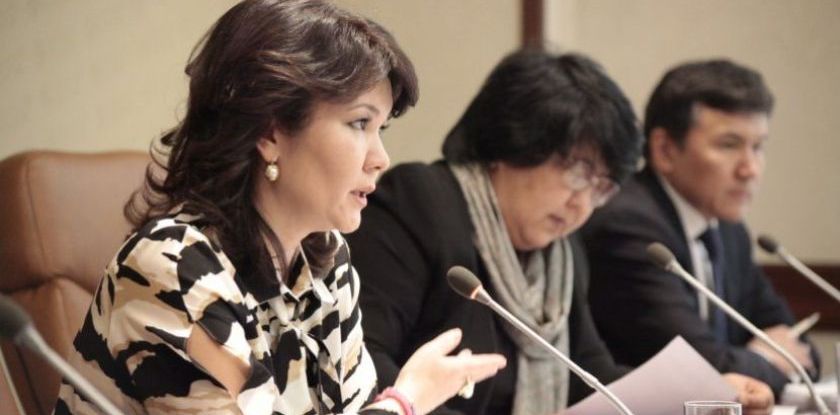At the press-conference on the results of Halyk Bank’s activity for the period of January-September 2017, the bank’s Chairperson Umut Shayakhmetova devoted quite some time to discussion Bank RBK and its problems and was rather hard-hitting in her remarks.
To prove our observation, we will quote some passages from her speech cited in an article published on Kapital.kz.
For instance, Umut Shayakhmetova believes that the National Bank “saw the huge and concentrated increase of Bank RBK’s loan and deposit portfolios”. Besides, “the bank offered the deposits with very attractive rates, and this fact alone should have attracted the regulator’s attention”.
“Of course, it is pitiful and very disappointing that very young banks that had not even lived through the 2009 downfall when we experienced a dramatic devaluation and liquidity crisis had not learned any lessons from it. In talking about the situation at Bank RBK, I believe there were many special circumstances to begin with, in other words, from the moment when some of the bank’s shareholders were permitted to enter the market. Besides, there was, of course, the big question of investing the funds of the national companies…”
“The problems of the bank were obvious and evident for everyone. When we analyze banks for the purpose of establishing relationships with them, we consider all these indicators. Why the regulator did not ask the questions (or perhaps they did ask but the questions were ignored), we cannot tell. The only thing is that, as many say, the banks are affiliated companies and certain persons stand behind each bank… Still, I believe corporate management is very important in a bank. We all work under the same laws, in the same macroeconomic environment. Every bank, including Halyk, has certain problems, however, some banks allow themselves to break the law and others do not. This question, of course, should first be addressed to the shareholders of the banks since they are usually the ones controlling the corporate management, they are in charge of the correct choice of top officers, of how to establish control when non-bankers who had not work one day in financial organizations are put in charge… So, once again, here are some questions for the regulator”.
“…It was clear that some banks were breaking the law paying commissions for attracting deposits. (…) The regulator knew about this. For example, there is the maximum level of depository rate of 12% but there are also some commissions being paid – the agent fees, 2% plus cash (…). This shows that the bank has found itself in a situation when it needs liquidity, when it is ready to employ some schemes to attract funds. There is perhaps some persons’ interest, may be they are pulling out the money from some businesses. There is plenty of questions. We had touched upon these issues at the Association of Financiers of Kazakhstan, we had been telling the regulator about this during different periods and to different people in charge. However, there had been no reaction to our comments. All these issues are quite evident, all these problems, it seems, could have been prevented and controlled. Perhaps this is the issue of the political will, the regulator’s potential, and their desire. All the means to prevent this exist today and had existed before”.
Such harshness on the part of Ms. Shauakhmetova can perhaps be explained by the fact that she, being a professional financier, was extremely outraged by the very risky operations of her colleagues from Bank RBK and by if not indulgence but certainly non-interference on the part of the regulator.
There is, however, another explanation.
By our estimate, Halyk Bank, due to its exceptional standing in the country’s financial system, is not cardinally different from RBK. Moreover, Ms. Shayakhmetova’s employers, Nursultan Nazarbayev’s daughter and son-in-law Dinara and Timur Kulibayevs, present a far safer “roof” than those who control RBK.
And without this “highest-level” protection, that, from the mid-90s, has guaranteed Halyk Bank the preference in the matter of investing the state and quasi-state funds without the open interference of Akorda, the National Bank, etc, Halyk Bank would have never become the monster it is today.
Therefore, it is possible that Ms. Shayakhmetova’s harshness in her talking about RBK and its current problems is simply an attempt to shift the attention from her our financial organization to another one.
One should praise Ms. Shayakhmetova – so far, she has been successful in this. As a result of this attention shift, the fact that her bank has turned into a super systemic financial institute with the guaranteed support of the state no matter who the president is and Halyk’s own problems associated not so much with Kazkom as with the lack of the quality borrowers in the country are left unnoticed by the press and the civil society.




